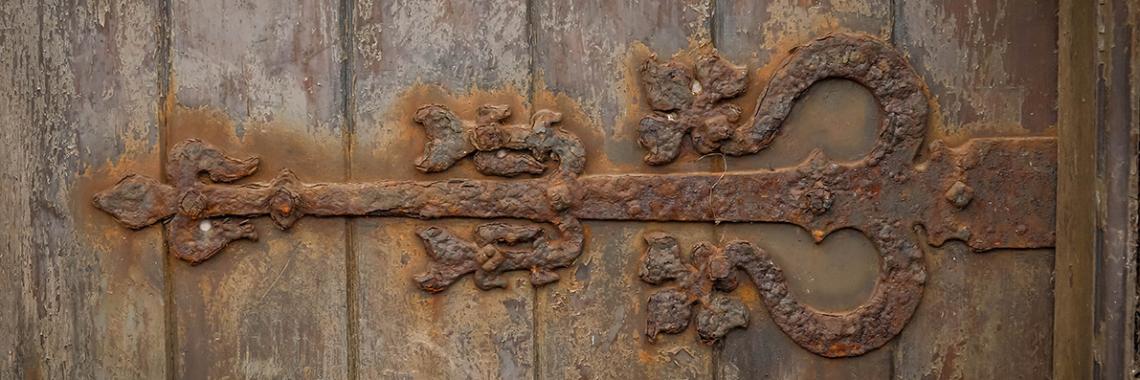Margaret was accused of witchcraft and suffered terribly but she refused to confess and was eventually freed.
Margaret was first accused of witchcraft at South Leith parish in January 1644. The kirk session had ordered her sackcloth dress and sent to Musselburgh for a witch pricker, but she escaped.
Unfortunately, Margaret was quickly re-captured at Calder. Although a woman called Marion Ramsay who escaped at the same time seems to have evaded capture.
Margaret had been apprehended by James Sandilands, the kirk bailie. She was kept in the vestry of the Kirk of Calder and treated cruelly for four months. Margaret was kept naked except for a sackcloth (it must have been very cold) and forced to stand on a stool for twenty-six days.
During this time men kept her constantly awake. When she fell over James Sandilands struck her with a staff to make her stand up again. Hew Kennedie, the young minister, also struck her with his wand {willow stick} and when that wasn’t hard enough he hit her with a rung {a stick or club}.
Margaret, an older lady, often fell. Her face and head bled heavily, her foot was broken and she described being in peril of her life by dinging out of her braines. She was not allowed to see anyone, not even her husband, Archibald Gray of Calder Muir, or their children.
If Margaret had confessed to being a witch she would have been found guilty and sentenced to death. She must have been a remarkable woman to withstand all this without confessing.
The accusations against Margaret were that she had been named as a witch by three other women: Agnes Bischope, Agnes Vassie and Marion Gibson. All three of them had been found guilty of witchcraft and sentenced to death.
She was also said to have used charms at least twice. Once offering to help Margaret Williamston from Williamston with a sick cow. Another time giving advice to John Forrest who was ill. Margaret advised him to take a drink she’d bought from a woman in Edinburgh and to cut a belt into nine pieces and bury it between the lands of two noblemen.
This is all recorded in an appeal Margaret made to the Privy Council in Edinburgh about her cruel treatment. Her husband had to raise the action on her behalf. She told their Lordships that she was being held without hope of release or trial and asked to be freed. The Privy Council agreed that she had been treated unfairly and ordered her to be released on surety {bail} of 500 merks (about £3500 today}.






